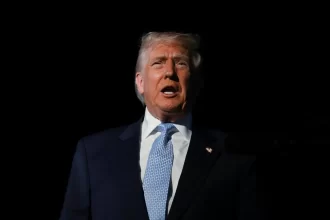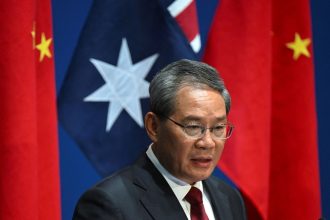New Delhi: In a historic electoral triumph, Prime Minister Narendra Modi’s Bharatiya Janata Party (BJP) has secured a commanding victory in Delhi, reclaiming power in the capital after 27 years.
The BJP has won or is leading in 47 of the 70 assembly seats, comfortably crossing the majority mark of 35, while the incumbent Aam Aadmi Party (AAP) trails with 23 seats, according to data from the Election Commission of India (ECI).
A Defining Moment for Delhi Politics
Celebrating the victory, Modi took to X, declaring: “Development wins, good governance triumphs.” He assured that his government would leave “no stone unturned” in driving Delhi’s growth.
This election was not just a political contest—it was a battle for prestige. As the capital city, Delhi carries immense symbolic and strategic importance. For the BJP, this victory cements its dominance across India’s political landscape, while for AAP, the loss signals a major setback after a decade-long rule marked by welfare-driven governance.
AAP’s Decline Amid Corruption Allegations
Since 2013, the AAP, under Arvind Kejriwal, had positioned itself as a champion of education and healthcare reforms, winning voter trust. However, recent corruption allegations against Kejriwal and his key ministers, including Manish Sisodia, have dented its credibility. Both leaders, who deny the charges, were arrested over an alleged liquor policy scam before securing bail.
The legal troubles and governance restrictions imposed on Kejriwal—who was barred from entering the chief minister’s office—left AAP vulnerable in this high-stakes election.
A Crushing Defeat for AAP, Congress Wiped Out
The biggest electoral shocks came with Kejriwal losing his seat in New Delhi and Sisodia suffering defeat in Jangpura, ending their stronghold over the capital. Meanwhile, incumbent Chief Minister Atishi managed a narrow win in Kalkaji but failed to uplift AAP’s overall performance.
Kejriwal, in a video message on X, acknowledged the results, saying, “We humbly accept the people’s verdict and congratulate the BJP. I hope they live up to the expectations of those who voted for them.”
Meanwhile, the Congress party, once a dominant force in Delhi politics, failed to win a single seat, continuing its downward spiral since being ousted in 2013 amid corruption scandals.
Modi’s Political Momentum Strengthens
For the BJP, this victory is more than just an electoral win—it is a strategic foothold in the nation’s capital. Having already secured major wins in Maharashtra and Chhattisgarh, the BJP invested heavily in Delhi, with Modi and Home Minister Amit Shah personally leading the charge.
Political analysts say this landslide victory reaffirms Modi’s national popularity, especially after the BJP lost its outright majority in last year’s general elections.
What Lies Ahead?
With over 60% voter turnout, the people of Delhi have spoken decisively. While exit polls predicted a BJP win, the scale of AAP’s defeat raises serious questions about its future viability as a political force beyond Delhi.
The BJP, now firmly in control, faces the challenge of delivering on its promises and ensuring governance that aligns with the aspirations of Delhi’s electorate.








